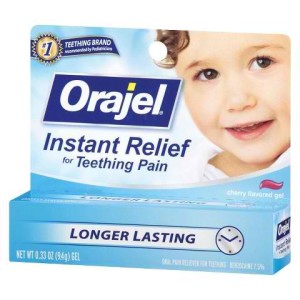Babies are truly adorable. Although they haven’t yet gained their own teeth, they never failed to appear cute and endearing. Nevertheless, the fact doesn’t mean they need no dentist. As a matter of fact, recent studies show that dental care must be delivered as early as the baby’s born. The method both prepares them for their baby teeth and for the permanent teeth.
As the baby grows, it’s inevitable for parents to use some dental care products. One most common product is the teething gel.
The teething gels are used by kids below two years old. Although these are pretty useful especially to teething kids, Food and Drug Administration stressed that this product can cause poor implications to toddlers which was also agreed by a pediatric dentist in Mesa . Basically, they are referring to teething gels made from benzocaine. Benzocaine is a local anesthetic. This can be acquired in different stores and over-the-counter shops. This local anesthetic contains hurricaine, anbesol and baby orajel. The teething gel is pretty effective in alleviating toothaches. However, this remedy is discovered to have adverse effects that may cause chaos to the health.
As outlined by analysis, the local anesthetic can cause a rare blood disease, called as methemoglobinemia. While teething gels help kids overcome the normal eruption of the first tooth, dental specialists give serious warnings to parents about this product.
Methemoglobinemia is a rare yet serious blood condition. This allows you to experience higher levels of oxygen that carries protein hemoglobin to your bloodstreams. As the average level is exceeded by at least 1 percent, you suffer from reduced ability of releasing oxygen to the vital tissues. With this, you become prone to several illnesses, including shortness of breath, inability to exercise, headache and fatigue.
Just like other diseases, methemoglobinemia can be congenital or acquired. The Food and Drug Administration proved that benzocaine present in teething gels is among the common reasons of getting this condition.
The teething gel is actually helpful to growing toddlers. Of course, the teething process is one of the most difficult experiences suffered by babies, making them in tears. Aside from the sleepless nights, you can also notice some changes to your toddler as he encountered the teething process. Research shows, teething process makes the baby’s gums sore and tender. Changes of the kid’s behaviors also involve fussiness, fever, diarrhea, sleeping problems, increased drooling and the likes.
Since teeth gel is no longer a safe option to teething kids, here are the several guidelines you can use.
To minimize the discomfort felt by babies during the teething process, parents may rubber teething ring. They may also provide the baby with cool washcloth or a bottle filled with fresh, cool water to sooth the discomfort. Moreover, massaging the affected gums is also helpful. Of course, this must be conducted with clean fingers. Alleviating the affected gums can also be done by feeding the baby with cool and nutritious foods, such as sugar-free yogurt or frozen bananas.
Parents who remember the pain associated with growing wisdom teeth can truly understand the teething process. To make sure you’re doing great, consult a pediatric dentist.
